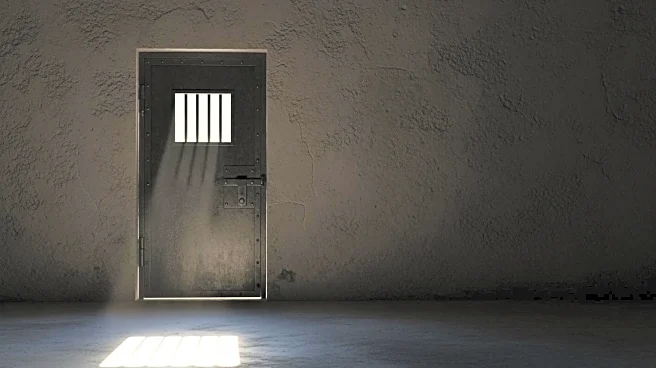What's Happening?
Kamran Hekmati, a 70-year-old Iranian-American and Jewish man, has been imprisoned in Iran due to a visit he made to Israel 13 years ago for his son's bar mitzvah. Hekmati, who is suffering from bladder
cancer, is currently detained in Tehran's Evin Prison. His family, concerned about his health, has filed an appeal. Hekmati was arrested in July, around the time of the 'Twelve Day War' between Israel and Iran, and sentenced to four years in prison under a law prohibiting Iranian passport holders from traveling to Israel. This sentence was later reduced to two years. The U.S. State Department, unable to comment on individual cases, has warned that dual U.S.-Iranian nationals are at significant risk of detention in Iran. Representative Tom Suozzi has called for Hekmati's immediate release on humanitarian grounds.
Why It's Important?
The imprisonment of Kamran Hekmati highlights the complex diplomatic challenges faced by dual nationals in Iran, particularly those with ties to the United States. This case underscores the risks associated with travel to Iran for individuals with U.S. connections, as the country does not recognize dual nationality. The situation has raised concerns within the Persian Jewish community in the U.S., particularly in Long Island, where Hekmati is a respected community member. The case also illustrates the broader issue of unjust detentions in Iran, which has been a point of contention in U.S.-Iran relations. The involvement of U.S. lawmakers, such as Rep. Tom Suozzi, indicates potential diplomatic efforts to secure Hekmati's release, reflecting the ongoing struggle to address human rights issues in international diplomacy.
What's Next?
The next steps involve diplomatic efforts by the U.S. government to secure Hekmati's release. Representative Suozzi has urged the State Department to work urgently towards this goal. The family has hired a lawyer to appeal the sentence, and there may be increased pressure from the U.S. and international community on Iran to address cases of unjust detention. The situation could lead to further diplomatic discussions between the U.S. and Iran, potentially involving allies and partners. The outcome of these efforts remains uncertain, but the case could influence future policies regarding travel advisories and diplomatic relations with Iran.
Beyond the Headlines
Beyond the immediate concerns of Hekmati's imprisonment, this case raises ethical questions about the treatment of dual nationals and the implications of international travel laws. It highlights the cultural and legal challenges faced by individuals with dual citizenship, particularly in countries with strained diplomatic relations. The case may prompt discussions on the rights of dual nationals and the responsibilities of governments to protect their citizens abroad. Additionally, it could lead to increased advocacy for human rights and legal reforms in countries with restrictive travel laws.










